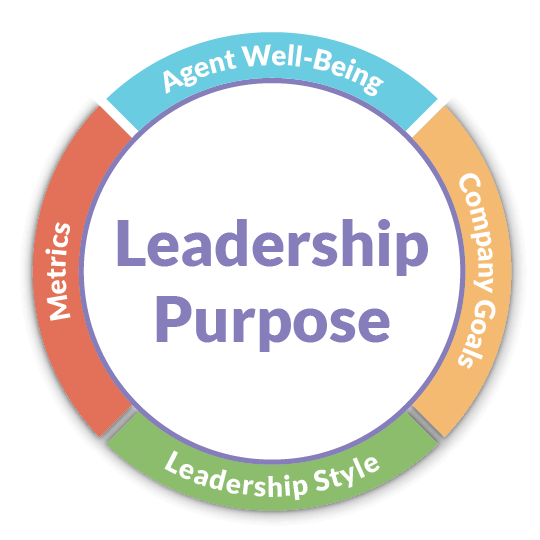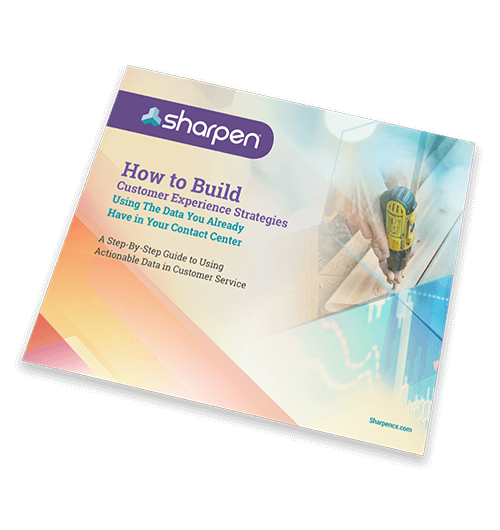
The 4 Competencies of a Standout Customer Experience
It’s easy to say that the focus of your customer experience is your customer. But, as your company grows and changes, sometimes customers slip to the back burner. Priorities shift. Focus narrows in on profit and growth and it’s easy to lose sight of important factors that impact your customer experience. Luckily, there are four core competencies of customer experience that can help you recenter.
A while back, Bruce Temkin of the former Temkin Group, now owned by Qualtrics, set out to find what separates the A teams from the B teams in customer experience. His team studied hundreds of companies and recognized that delivering a good customer experience requires a holistic approach: it’s not just about the customers.
>> Download Now: Use the data you already have to build a better CX
Every step of the customer journey and every department in your company needs to focus on the same goals and values. Every interaction a customer has with your brand has to be consistent (and excellent). You need a unified front to deliver a positive customer experience.
Temkin says 4 competencies determine the success of your customer experience:
1. Purposeful Leadership:
Your leadership team aligns to a clear and consistent set of values.
2. Compelling Brand Values:
You set appropriate expectations with customers on how they’ll interact with you. (And you meet those expectations from the first interaction to the last.)
3. Customer Connectedness:
Every department’s decision-making integrates customer insights and ideas.
4. Employee Engagement:
Your employees understand and align to your corporate goals (and know how they impact each goal).
When you master these four areas, your company stands out and builds customer loyalty. These core areas create a healthier company environment and set you up for success on all fronts. Let’s take a deeper look at these four core competencies of customer experience and how they apply to your contact center.
1. Purposeful Leadership
Do your leaders have a clear, well-articulated set of values, and do their actions support those values?
If you want to grow, company leaders need to define the values and goals for the rest of your company. It’s in the hands of leadership to create momentum and purpose for your company and to align stakeholders to your goals.
Strong leaders, according to Temkin, must be passionate, persuasive, positive, propelling, and persistent. These skills help you engage your employees, too. Your leadership team’s energy and vision for the future of your company set the stage for your front-line employees. Likewise, it helps them feel passionate and invested in the future of the company.

Make sure every employee understands why the company makes the decisions it makes. Front-line employees, especially agents in contact centers, are often ignored when leaders make and communicate larger. But, they’ll work harder if they feel involved and informed in company plans.
Purposeful leadership is all about praising employees for their hard work to show them how much you value them. Encourage hard work and give feedback often. Be persistent and take action to support your team, even when it’s hard. Your contact center agents constantly deal with errors and issues that aren’t their fault – it’s easy to get discouraged. It’s up to you to be persistent and positive.
>> Read Next: How to run a highly effective contact center (today)
2. Compelling Brand Values
Does your company have a set of promises and values, and do they uphold them?
Your company isn’t running a political campaign. You can’t break promises. When you do, you lose trust. And then you lose your customers. To create a great customer experience, you have to create a core set of brand values and promises, then live and breathe those values.
Your contact center employees need to understand your company’s brand values and understand their own role in fulfilling them. As a customer service leader, it’s on your to champion the values with your team. And, it’s your responsibility to hold your team accountable for living out each of your brand values every day, with every customer interaction.
Aligning your team to brand values helps your agents understand how their actions impact your customers. It gives them a purpose that’s bigger than answering phone calls and fielding chats. And, it builds a team that proves to customers you’re honest and reliable.
3. Customer Connectedness
Do you use customer feedback and data to inform your business decisions?
It’s easy to take steps forward without turning to data for insight, first. Maybe you lean into a gut feeling about something or your boss insits you make changes to your customer experience, NOW, before you have a chance to analyze your data.
But with ever-changing customer expectations, you can’t rely on those gut feelings to build lasting strategies. To make meaningful changes to your customer experience, use customer insights to inform each step of the customer journey.
Knowing your customers brings you closer to them and helps you preemptively understand what they want. Listen to your customers and act on their requests. It’s true – customers don’t always know what’s best for them. But, you have to ask for feedback and listen to understand their pain points and what they want out of their customer experience. Only then can you build an experience that meets their needs.

Understand who your customers are and get qualitative feedback with surveys. Then, supplement that anecdotal feedback with data from your customer interactions to back it up. Measure the right KPIs and turn to behavioral data to see what’s happening with your customers. Use your data to spot trends like high handle times or multiple callbacks. And, see how these metrics contribute to customer churn.
As your employees learn more about your customers and their behavior, your agents can show more empathy and understanding.
>> Learn More: Use your data to make decisions with confidence
4. Employee Engagement
Are employees fully committed to the goals of your organization and feel connected to their work?
Employee engagement is, unfortunately, often neglected when considering the customer experience. There’s such a big focus on the customer, it can be hard to account for the needs of those working tirelessly to deliver the best service. The focus is put so directly on the audience you’re talking to that it can be easy to forget the people who are working tirelessly to deliver the service. But leaving your agents’ engagement out of the mix is a recipe for disaster. Engaged employees fuel a virtuous cycle — they deliver a great experience, which builds loyal customers, which leads to higher revenue. And, in turn, this lowers employee turnover and allows your company to further invest in your workforce.
Business teams that have high employee engagement scores outperform teams that don’t focus on engagement. They have 10% higher customer loyalty/engagement, are 17% more productive, see 20% higher sales, and 21% higher profitability.
Having an engaged workforce means you train your team often and you keep them aligned to your company goals (and those brand values I mentioned earlier). It means you build your agents up so they’re inspired to work harder and support their peers. When you do these things, you build a team that delivers on your brand promises and delivers the best possible experience for your customers.
How the 4 Core Competencies Connect for Better Customer Service
The core competencies of customer experience don’t work when they’re alone in a vacuum. They’re all intertwined and connected. To build the best customer experience It takes good management to recognize the need for engaged employees. And it takes purposeful leaders to talk to customers, learn what they need, and create a lasting set of brand values. It takes good management to cultivate a strong culture and retain your best employees.
When leaders are deeply convicted, they motivate the rest of the company to do their best work. And when they do, your customers notice. Your customers take note when your company makes intentional decisions. They see the deeply-rooted set of values behind every interaction. They notice when your agents have the training and autonomy they need to get the job done. And, they know when the agent they talk to is committed to helping them (or when they’ve checked out).
To deliver a top-notch customer experience, use these competencies as the foundation for your strategy.
We originally published this post on May 23, 2019 and we updated it for new insight on November 11, 2021.


